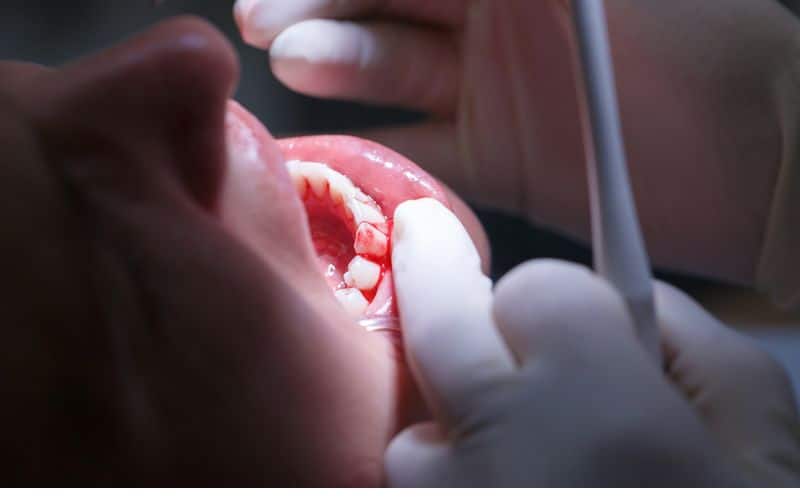If you’re sick, it’s always a good idea to cancel your dentist appointment. This way, you can avoid spreading germs to other patients and get well faster.
However, there are some instances when it’s worth going to the dentist even if you’re sick. For example, a dental exam can help detect early signs of bulimia or GERD.
1) Mouth Sores
Mouth sores are painful bumps that form in the lining of the mouth, usually around the tongue and cheeks. They can range in size from tiny spots to large ulcers, and may be surrounded by a red “halo” of irritation. Symptoms of mouth sores include tingling and discomfort when eating or brushing teeth. The sores usually heal within a few weeks and don’t cause any lasting damage, but they can be uncomfortable.
Most mouth sores are a result of an infection or illness. Those with warning signs — such as pain and difficulty eating — should see a doctor immediately. A doctor will examine the lining of the mouth and ask questions about symptoms and eating habits. They may also order a swab test, blood test, tissue sample or a biopsy to determine what is causing the sores.
Some types of mouth sores are caused by herpes simplex virus, which can spread through kissing or sharing utensils or food. Other types of mouth sores are called canker sores and develop inside the mouth. These are usually a few millimeters wide and have whitish centers with reddish, sunken edges. Those that occur on the tongue or gums can be triggered by sharp tooth surfaces or dental appliances. Major ulcers are larger and often irregular in shape. They can take up to 2 weeks to clear and might bleed or ooze.
2) Gum Bleeding

Bleeding gums are usually a sign of a bigger oral health issue. For example, it may indicate gingivitis which is the first stage of periodontal (gum) disease. It happens when plaque bacteria build up on your teeth and at the gumline. If left untreated, this will lead to gum inflammation, bad breath, inflamed and receding gums and tooth loss. Bleeding gums can also be a symptom of diabetes or leukemia, which both make it harder for your body to fight germs and infections.
Bleeding gums can also be caused by a number of other conditions and symptoms, like hormonal changes (such as during pregnancy), nutritional deficiencies (like vitamin C or K) and infections. In addition, some medications can also cause or aggravate bleeding gums, such as blood thinners.
If you experience bleeding gums, it is important to call Dr. Viet Tran at Smiles of Memorial as soon as possible to get a professional evaluation and treatment. This is especially true if you’re experiencing other signs and symptoms of an infection, such as fever, congestion or runny nose, or have been vomiting or feeling sick to your stomach. This is because an infection in your mouth can spread to other parts of your body, which could affect your overall health. Bleeding gums are often a precursor to more serious health issues like heart disease, diabetes and dementia.
3) Pain

A toothache can be an uncomfortable experience. You will feel pain in your jaw, mouth, and head, have bad breath, and get a sour taste in your mouth. It is a sign of a serious dental problem like a tooth infection or an abscess. If you don’t treat the infection, it can spread to your gums and the whole jaw, leading to a severe headache and fever.
It’s important to keep regular visits to the dentist to maintain good oral health. However, some people may struggle to reschedule a dentist appointment because of their work or other responsibilities.
If you are sick, the best thing to do is reschedule your appointment and take care of yourself. If you have to go, wash your hands thoroughly and sanitize them frequently. This will prevent the spread of germs to other patients and staff.
If you are getting dental treatment for a tooth extraction, don’t touch the extraction site with your tongue and don’t chew or drink using straws. This can dislodge the blood clot and cause excruciating pain. Ask your dentist for stopgap measures that you can do to help the healing process until you are well enough to visit again.
4) Fever

A fever, or elevated body temperature, is an indication that the immune system is trying to fight off an infection. It’s often caused by viruses, though it can also be a symptom of a gum abscess (periodontitis) or a tooth infection that has spread to the surrounding bone and tissues (periodontal abscess).
Fever is typically easy to treat with over-the-counter drugs like Tylenol or Advil, lukewarm baths, and plenty of fluids. Be sure to avoid giving children or teens aspirin, which can be linked to a rare but potentially fatal condition called Reye syndrome.
Many people are able to power through their colds and other illnesses until they feel better, but if you’re sick with the flu or a common viral infection, you should reschedule your appointment. You’ll be contagious, and dentist office staff and other patients could end up getting sick as well. In addition, coughing and congestion can make it hard to sit through an entire treatment session. If you’re feeling congested, let the dental office know so that they can schedule frequent breaks in your treatment to allow you to breathe through your nose. They may even ask you to use a face mask to protect themselves and other patients from your germs.


